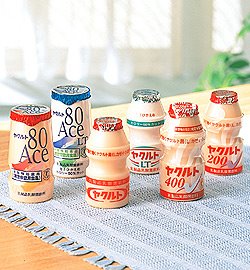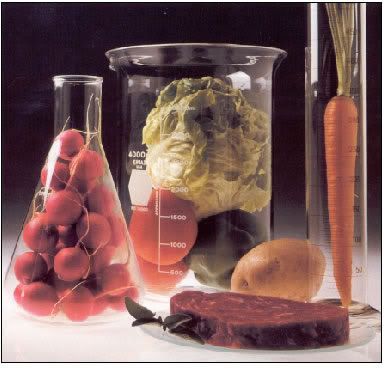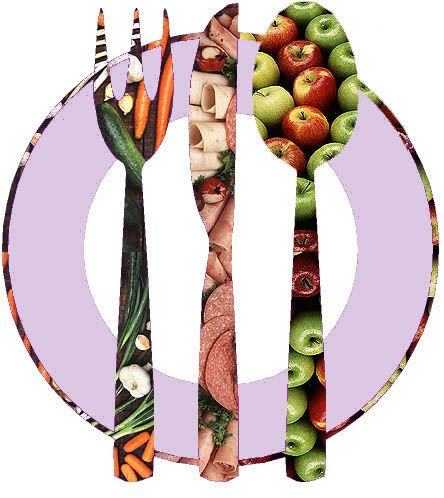Dietary factors protecting women from urinary tract infection.

Title
Dietary factors protecting women from urinary tract infection.
Source
American Journal of Clinical Nutrition. 77, (3): 600-604, 2003.
"Because urinary tract infections (UTI) are caused by faecal bacteria, dietary factors may affect the risk of contracting a UTI by altering the properties of the faecal bacterial flora. Dietary and other risk factors for UTI were studied in fertile women in a case-control setting. 139 women from a health centre for university students or from the staff of a university hospital (mean age: 30.5 yr) with a diagnosis of an acute UTI were compared with 185 age-matched women with no episodes of UTI during the past 5 yr. Data on the women's dietary and other lifestyle habits were collected by questionnaire. 

Frequent consumption of fresh juices, especially berry juices, and fermented milk prodjucts containing probiotic bacteria was associated with a decreased risk of recurrence of UTI: the OR for UTI was 0.66 per 2 dl juice. A preference for berry juice over other juices gave an OR of 0.28. Consumption of fermented milk products >=3 times/wk gave an OR of 0.21 relative to consumption <1>"

The consumption of fresh juices, especially juices prepared from berries, was more common among the women who had not experienced a UTI recently. This protective effect was not associated with the total volume of liquid consumed. Our finding agrees with earlier intervention trials in which cranberry and cranberry-lingonberry juices were found to provide protection from bacteruria and UTI recurrence. Most berries, especially those of the genus Vaccinium, are rich in flavonols, such as epicatechin, which is a potent inhibitor of the adhesion of coliform bacteria to human cells. Plants produce flavonols in response to microbial infection, suggesting a role for these substances in antimicrobial defense. Some fruit such as apples, cherries, and plums are rich in epicatechin, but in general the flavonol content of berries is higher, which may explain their association with reduced UTI recurrence. It is impossible from our results to make any comparisons between different berries or fruit in terms of their capacity to prevent UTI because some of the products were consumed only seasonally. 

Frequent consumption of fermented milk products containing probiotics was associated with a low incidence of UTI recurrence, whereas no such association was found for fresh milk products. Thus, it is possible that the protective effect is related more to the probiotics in these products than to the milk itself. Lactobacilli of the kind found in fermented milk can colonize the human intestine and replace coliform bacteria and have been shown to be effective in preventing UTI recurrence when administered intravaginally and to restore urogenital flora when administered orally. In the present survey, most of the women consumed fermented milk products containing probiotics several times per week. The variation in the doses reported by the present respondents was great enough to demonstrate the protective effect of such products. In particular, there were more women avoiding milk products with probiotics or using them only occasionally among the cases than among the controls.

Products containing lactobacilli(fermented milk drinks)
In line with earlier findings, intakes of vitamins, minerals, and herbal supplements; methods of menstrual hygiene; or constipation were not associated with the risk of UTI. Contrary to the report of Apicella et al, we did not find daily calcium intake to have any effect on UTI risk. Total daily drinking volume had no effect on UTI risk and was practically the same in both groups, which also agrees with earlier reports. The UTI-promoting effects of sweetened juice concentrates and added sucrose that were apparent when analyzed separately but that disappeared in the multivariate model may merely reflect the fact that these products are consumed as alternatives to fresh juices.

Frequent intercourse remained the only nondietary factor affecting the risk of UTI. This was documented previously. The number of gynecologic infections increased the risk of UTI when analyzed separately, but this effect disappeared in the multivariate model. It is thus probable that gynecologic infections reflect sexual activity in these women and, thus, that multivariate modeling excludes these women from the final risk profile. None of the subjects in our survey used a diaphragm or spermicides, which were found earlier to increase the risk of UTI; condom use or the other contraceptive methods used here were not associated with risk.

The risk for UTI recurrence is highest for 3 months after the initial UTI episode, and recurrences tend to accumulate to the same individuals. This has been suggested to reflect changes in the periurethral bacterial flora, possibly resulting from antimicrobial use. The relation could be also genetic, reflecting urinary tract anatomy or immunologic differences suggested by ABO blood group dependency. An association of previous UTIs and the risk of recurrence was found in this survey also but disappeared in the multivariate analysis, suggesting that the accumulation of UTIs to the same persons could be due to the long-term existence of dietary and hygienic factors affecting UTI risk.

In conclusion, we found several dietary factors to be associated with a lowered risk of UTI, including the amount of fresh juice consumed, especially berry juice. The effect of berries in preventing UTI may thus be even greater than was seen in intervention trials. Fermented milk products containing probiotic bacteria also appeared to be associated with a lower risk of UTI. Thus, dietary guidance may be a first step toward preventing UTIs in women.




2 Comments:
Its like уou reaԁ my mіnԁ!
You aρpeaг to know so much about this, like you wrote the bоok іn it
οr ѕοmething. I think that you can do with a few pics to drive the meѕsagе hоme a
bіt, but otheг than that, this is mаgnifiсеnt blog.
A great гead. I'll definitely be back.
Feel free to surf to my blog :: car transport
Greatе article. Кeep poѕtіng suсh kinԁ of
іnfο on youг blog. Im really іmpгеsѕed by yоuг site.
Hey theгe, You've performed an incredible job. I will definitely digg it and for my part recommend to my friends. I am confident they'll be benеfіted from this sіte.
Viѕit my webpage ... coffee pure cleanse double strength reviews
Post a Comment
<< Home